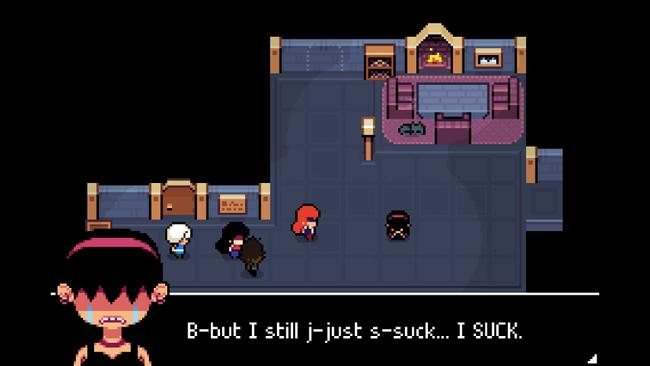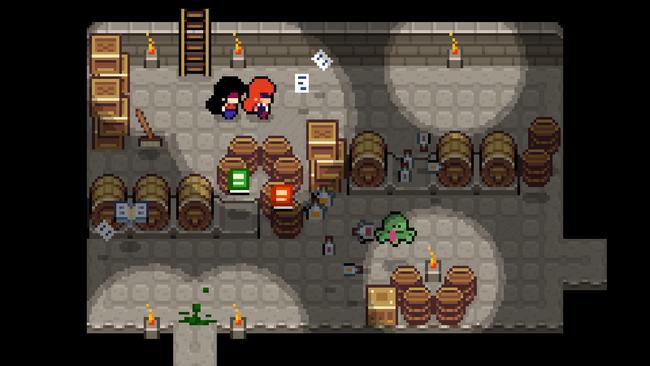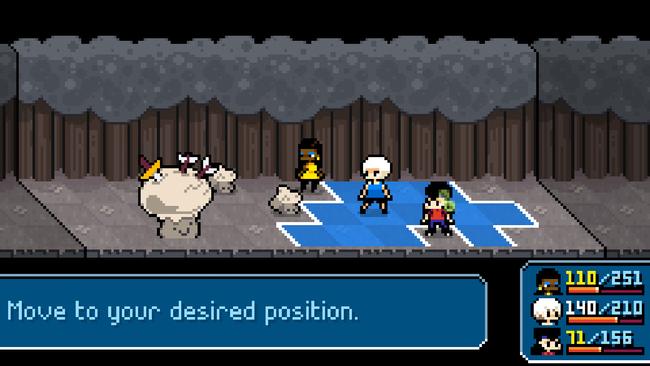
Ikenfell Review
It’s rare that I find something that makes me nostalgic for something I always wanted but never had; nostalgic for the imagination and creativity found in adolescence. Somehow, Ikenfell managed to do both of those things. Ikenfell is a game about young people in a school for the magically gifted, but more than that, it’s a game that explores identity and the power dynamics that naturally form when people start to figure out who they really are. So much can be said about this game and how it has managed to be innovative while still evoking nostalgia without feeling like a cheap nostalgia grab.

Ikenfell opens with Maritte, an Ordinary (aka non-magic user), searching for her missing sister at the recently shut down wizardry school. It becomes clear that while Maritte and her sister seemingly care for each other, the simple fact that one has magic and the other doesn’t has created a shift in their relationship that neither has attempted to reconcile. Once a mysterious light grants Mariette the magic she’s always wanted, she still struggles to fit into a group that she’s always wanted to be a part of. That internal struggle becomes the strongest aspect of Ikenfell and its story.
There were moments during my playthrough where the storyline combined with the general mechanics felt slow or otherwise just a bit off with pacing. It can also be repetitive at some points and a tad too reminiscent of oft-told stories from the past. However, character moments felt real enough and honest enough that whenever things started to slow down, I was soon drawn back in. There’s genuine diversity within the cast of characters from skin tones, to insecurities, pronouns, and sexuality. Despite following a model that’s very familiar to a lot of us, that inclusion is rare in games these days and really solidified this game as something special to me.

Seeing the way characters struggled to be confident in the persona they put out into the world was so heartwarming and familiar. Maritte starts as essentially a nobody in the magic world and instantly becomes the only person capable of saving that same world. Then, on the other hand, there are characters who are so set in their ways that the subtle shifts in how others perceived them caused small breakdowns. Regardless of age, moments like that happen and they hit hard. Ikenfall managed to show that.
I don’t think it's possible to talk about the character-building in this game without mentioning the music, because the way they interact is so important. The composers for Ikenfell are aivi & surasshu, most known for their work on Steven Universe, and they did an amazing job at capturing the joys, loss, and mysticism within Ikenfell. It's Showtime, the song that plays in the games trailer and the reason I immediately wanted to play it, is the battle theme for a specific character and when I first heard it in-game I was in love. It’s a Steven Universe throwback of bubblegum pop revealing the character's inner turmoil as she struggles with an inferiority complex combined with the power she’s always wanted. Overall, the soundtrack is easy to listen to and quick to get stuck in your head.

With all the praise I’ve given Ikenfell so far, the one aspect that did initially lower my enjoyment was the gameplay, specifically battle mechanics. Ikenfell works as a turn-based game with quick-time events built-in. Whether you’re casting a skill or dodging an attack, every action requires a QTE that determines how much damage you’ll do or how much damage you’ll take. Conceptually I love this. Turn-based battles can often get repetitive especially in a system as simple as Ikenfell’s, so a real-time mechanic works to keep players engaged.
I, however, am notoriously bad at QTEs and often found myself missing the timing at the worst moments and dragging battles out. It was frustrating and slowed down a game whose narrative kept me going for hours. Without clear signals, battles just weren’t fun after a while. The solution to this was simple and right in the game's settings. Not only can you change settings so every QTE is set to whichever level you want (oops, nice, or great) but you can also add an automatic victory setting to your fight actions that, when used, gives you all the rewards of a fight without having to play through it.
Everyone’s playstyle is different. Allowing players to decide if they want to spend time battling enemies is the right move towards accessibility in games and one I definitely took advantage of when I was only feeling a story-driven play through or simply didn’t have the energy to be strategic and present in fights. Ikenfell proves and reinforces that there is no shame in not wanting to learn or deal with battle systems in a game. Again though, I can still see how someone who wants to experience the battle system as it is would be disappointed or frustrated regardless.
Ikenfell is a great game wrapped in a small package. Even with small pacing issues and a battle system that I often wanted to skip, I had a surprisingly good time with this game. Almost every aspect of it shines on its own and put together it’s a great retro-style RPG that takes the commonplace world of teenage magic and proves that it can be an inclusive space full of introspection and growth.